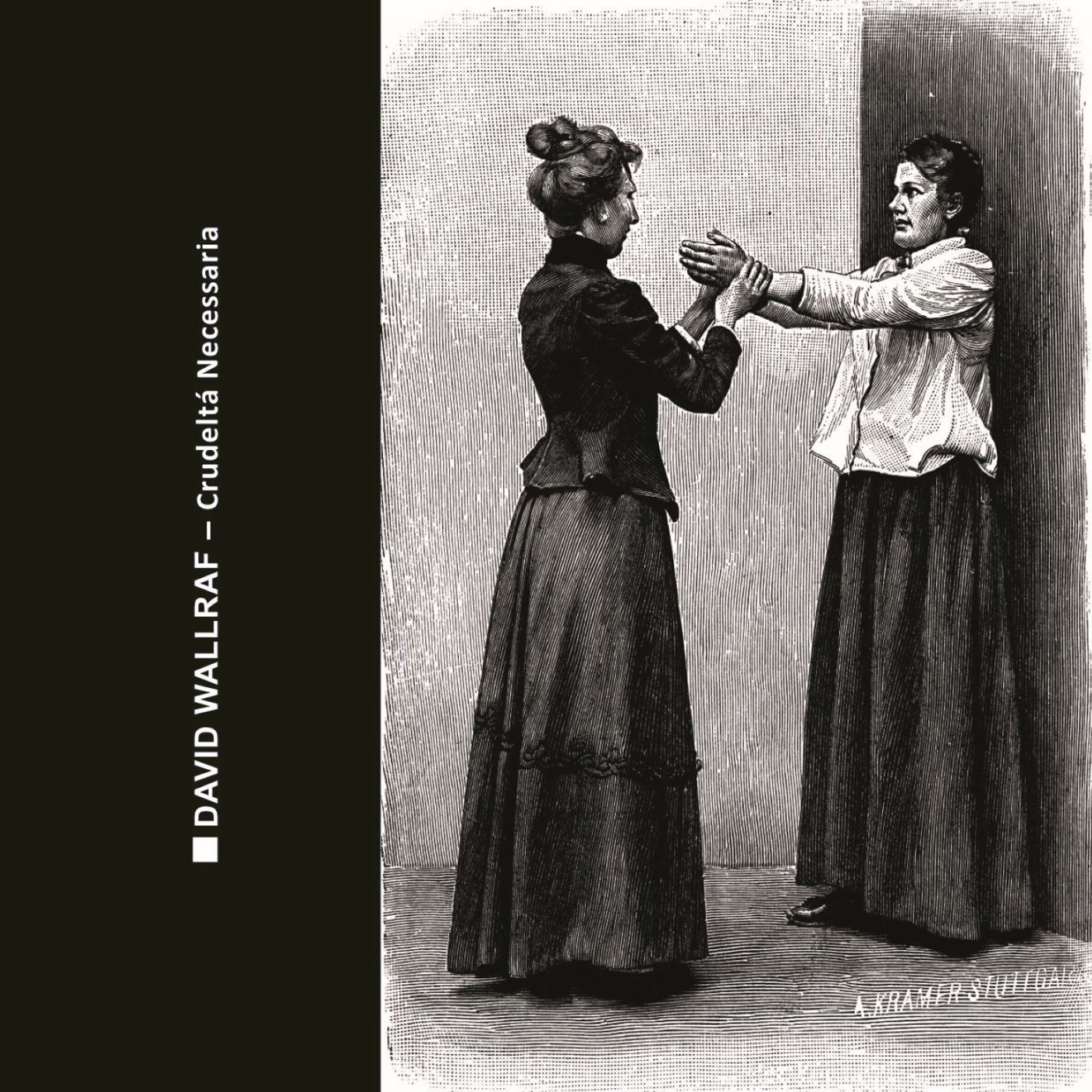
Noise artist DAVID WALLRAF returns with his second album on Karl – “Crudeltá Necessaria” deals with the role of cruelty in the works of PIER PAOLO PASOLINI.
DAVID WALLRAF is a noise artist and theorist living in Hamburg. His artistic work deals with the repressed and uncanny sonic residues of quotidian life, crafting soundtracks for the creeping disaster we inhabit. His works have been released on numerous international tape labels. A recent interest of his is the live scoring of silent films, including works by Luis Buñuel, Maya Deren and Jean Genet.In the academic world, WALLRAF graduated with a BA in musicology at University of Hamburg, MA in time based media at Hochschule für bildende Künste, PhD on noise at HFBK, his PhD thesis “Grenzen des Hörens. Noise und die Akustik des Politischen” (Limits of Hearing. Noise and the Acoustics of the Political) has been published in German. He also regularly gives lectures on power relations in music, noise-theory, sound art/studies and the politics of listening.
“Crudeltá Necessaria”, the follow-up to last year’s “The Commune Of Nightmares”, deals with the role of cruelty in the works of PIER PAOLO PASOLINI by blending noise, raw electronics and field recordings into a detailed dystopian sonic experience that “you don’t have to be afraid of” (R. Mießner, taz).
In the words of WALLRAF himself:
“The world (another word for society) is cruel in a banal sense: unjust, brutal and segregating. Life under capitalism is the generalized and global form of this cruelty, organized by the logic of abstract labor and alienation. But cruelty also carries a different meaning, one that has resonated with a few artists of the 20thcentury who positioned themselves against the cruel banality of their times. Cruelty in the sense of mercilessness or remorselessness, both a realism and a necessary stance in a battle against an overly powerful enemy. Antonin Artaud’s conception of the theater of cruelty exemplifies this stance, an “appeal to cruelty and terror […] whose range probes our entire vitality, confronts us with all our possibilities” (The Theater and Cruelty). All our possibilities: an affirmation of radical difference. A similar posture, although it replaces Artaud’s mysticism with a communist viewpoint, can be found in the works of Pier Paolo Pasolini.
Pasolini was a merciless analyst and critic of society under capitalist production. His answer to the banal brutality of capitalism was an artistic cruelty of his own design, a necessary cruelty which is evident in the films and texts that inspired these recordings. It is evident in the transformations and transitions of the novel-fragment Petrolio, it glares and screams from the screen in his films. You can hear it in the last and only words of the young cannibal in Porcile (“I killed my father. I ate human flesh. I quiver with joy.”), in Medea’s curse against Iason (“It’s useless! Nothing is possible anymore!”) and in the Sphinx’s desperate cry when murdered by Oedipus (“It’s useless! The abyss you’re throwing me in is in yourself!”). It gazes through the masks of mythological and historical settings. It is evident in the almost violent way Pasolini edited his films, a form of Verfremdungseffekt that exemplifies his remorseless stance towards his audience, the spectacle of the film industry, fascism and capitalistic society. This necessary cruelty serves as a last line of defense in the political and artistic struggle against societal and political pressure. With this release I hope to capture at least a fragment of this demeanor.”
Credits:
Recorded in Hamburg-Wilhelmsburg, 2023-2024. Sound design fragments from Pasolini’s films Edipo Re (1967), Porcile (1969) and Medea (1969) were recorded to ¼-inch tape loops and appear throughout these selections.
Chanting on A1 recorded on Easter Sunday 2019 outside Karola Boromeusza church in Warsaw, Poland. Boars on A1 recorded in November 2022 in Hellenthal, Germany.

